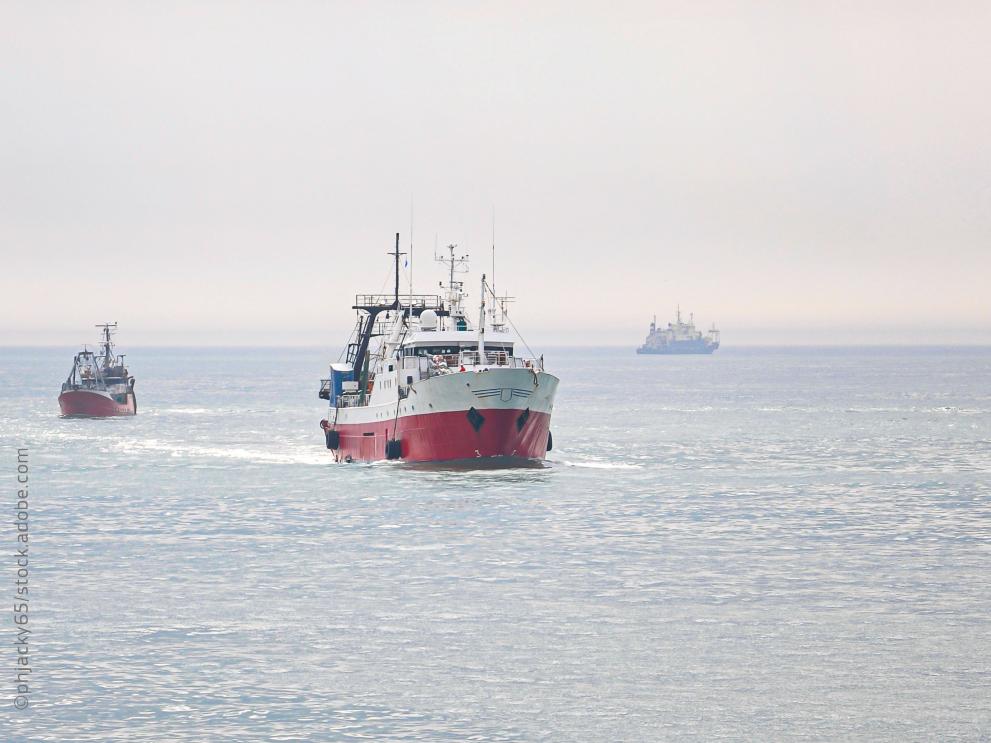
The 45th Annual Meeting of the Northwest Atlantic Fisheries Organization (NAFO) took place in Vigo, Spain, from 18 to 22 September 2023.
The focus of the meeting was the sustainable management of the key fish stocks in the Northwest Atlantic and maintaining a reasonable predictability for the fisheries industry.
The EU took a leading role in the meeting to ensure that the scientific advice was respected for all stocks of NAFO, including for the emblematic stocks of Greenland halibut, cod, and redfish, which are of particular importance to the Union.
Main decisions
- Greenland halibut: In light of the stable situation of the Greenland halibut, the total quota for this species for 2024 is set at nearly the same level as 2023. The Harvest Control Rule agreed six years ago is still effective and has ensured a stable and sustainable fisheries for this species.
- Cod: For the cod stock in the Flemish cap, the scientific advice foresees an increase in the fishing opportunities, which would still allow the stock biomass to grow. In addition, the accompanying management measures that consists in some temporary and spatial closure of the fishery, were also prolonged for an additional year to protect the stock.
- Redfish: As regards the stock of Redfish in the Flemish Cap, a total allowable catch (TAC) has been set in line with the current level of fishing mortality.
However, the situation of shrimp in the area did not improve enough to allow a reopening of the fisheries on those stocks. Therefore both the fishery for Northern shrimp in the Flemish Cap and in the Grand Bank remain closed.
In addition, NAFO agreed to extend closure periods for bottom fishing in vulnerable marine ecosystems areas in the North Flemish Cap, Northwest Flemish Cap and Eastern Flemish Cap until 31 December 2026.
Reinforced control and monitoring of the fisheries
NAFO members have also agreed on control and enforcement measures, which would allow to further strengthen the control framework of the NAFO observer scheme.
Background
The Northwest Atlantic Fisheries Organisation (NAFO) is the regional fisheries management organisation (RFMO) with the competence to regulate the fishing activities in the high seas of the Northwest Atlantic outside Canada's 200-mile exclusive economic zone, excluding the fisheries on tuna and tuna-like species, which are managed by another RFMO.
It is an intergovernmental organisation gathering the countries bordering the Northwest Atlantic and the countries having an interest in the fisheries in the area. The objective of NAFO is 'to ensure long term conservation and sustainable use of the fishery resources in the Convention Area and, in so doing, to safeguard the marine ecosystems in which these resources are found' (Convention on Cooperation in the Northwest Atlantic Fisheries).
The EU is a member of NAFO since its beginning in 1979. NAFO comprises of 13 Contracting Parties, the other members being Canada, Cuba, Denmark in respect of Faroe Islands and Greenland, France in respect of St. Pierre et Miquelon, Iceland, Japan, Norway, the Republic of Korea, the Russian Federation, Ukraine, the United Kingdom and the United States of America.
About RFMOs
RFMOs make sure that fishing activities do not cause significant adverse impact on biodiversity and marine ecosystems.
Countries with fishing interests in a given geographical area form RFMOs, which are also open to coastal States. Those RMFOs can also be accessed by countries whose fleets have been traditionally fishing in these areas or are interested in participating in these fisheries.
RFMOs have the power to adopt a variety of rules to manage the fishery. They use management tools like catch limits (quota), technical measures, spatial and/or temporal restrictions, and monitoring, control and surveillance activities to ensure compliance with the rules. RFMOs make decisions based on scientific advice provided by their respective scientific bodies and regularly review compliance by their members.
Today, RFMOs cover the majority of the world’s seas. They can broadly be divided into RFMOs focussing only on the management of highly migratory fish stocks, notably tuna and tuna-like species (‘tuna-RFMOs’) and RFMOs that manage other fisheries resources (i.e. pelagic or demersal) in a more specific area.
The EU, represented by the European Commission, plays an active role in 5 tuna-RFMOs and 13 non-tuna RFMOs. This makes the EU one of the most prominent actors in RFMOs worldwide.
More information
Details
- Publication date
- 26 September 2023
- Author
- Directorate-General for Maritime Affairs and Fisheries
